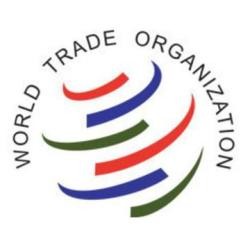Is The Antigua/USA iGambling Dispute Close To Being Resolved?

Antigua and the United States have been caught up in a heated battle regarding the online gambling industry for the past 12 years, but for the first time since Antigua filed proceedings against the U.S. through the World Trade Organization court, there seems to be some hope that the matter may soon reach a resolution. On 28th July, 2015 Assistant US Trade Representative (USTR) for the Western Hemisphere, John Melle, had a meeting with Foreign Minister of Antigua and Barbuda, H. Charles Fernandez to discuss the outstanding issue, and as USTR later announced:
“Both sides considered the meeting productive and useful for the exploration of various elements that could ultimately bring closure to the matter. Both governments have undertaken to continue the discussions at an early date with a view to reaching a final settlement.”
How the Dispute Began
Even those who are up on the world of online gambling may have forgotten the nature of the Antigua-U.S. dispute since so much time elapsed since the beginning of the situation in 2003. That’s when Antigua and Barbuda sued the U.S. over blocking Antiguan-based companies involved with online gambling to operate in the U.S.
Antigua argued that this move violated a 1998 treaty that allowed foreign companies to operate in the U.S. whenever American companies were granted reciprocity and allowed to operate in those foreign nations. The U.S. countered that widespread gambling was illegal in the U.S., prompting the Antiguans to rebut by pointing out the number of legal gambling operations in the U.S., like off-track betting horse races. In essence, Antigua accused the United States of trying to protect American companies involved in gambling and blocking free trade.
Economic Loss
Before the United States intervened and stopped Antigua and Barbuda from accessing their market, these Caribbean countries enjoyed a thriving gambling industry. Being cut off from the US has since had a devastating effect on their national economies, and as Antigua’s High Commissioner to London, Carl Roberts, previously explained:
“What was once a multi-billion dollar industry in our country, employing almost 5% of our population has now shrunk to virtually nothing.”
A Ruling, Appeals and a Steep Penalty
Although the WTO found that the U.S. had broken the treaty and rejected numerous appeals, the U.S. has continuously refused to allow Antiguan companies to operate in the United States. By not paying the agreed settlement, the U.S. has racked up a debt in excess of $200 million in penalties.
The WTO has granted Antigua the right to sell American intellectual property in order to recoup costs, but Antigua has not pursued this avenue because in essence it would mean stealing from American musicians, movie studios and other creatives. In March, however, Antigua’s Prime Minister Gaston Browne said it was no longer prepared to accept the USTR’s intransigence, and might resort to recovering money owed by selling U.S. films, TV shows and music via a dedicated ‘pirate’ website in Antigua. This would be exercising a right granted to the country by the WTO on in 2013. It seems that this approach may pay off for Antigua in the long run, too, as the United States is finally coming to the table to discuss the matter.
A Positive Meeting
Antiguan officials have been cautiously optimistic in regards to the long-standing dispute due to a recent meeting that took place in Washington D.C. between Charles Max Fernandez, the Minister of International Trade and Foreign Affairs of Antigua and John Melle, the Assistant U.S. Trade Representative for the Western Hemisphere. Following discussion and negotiation between the two, Antigua and the U.S. issued a joint statement that clearly stated that both countries had every intention to reach a settlement.
An Uncertain Outcome
While there is hope that Antigua and the U.S. will reach a deal based on recent events, there is still a chance that things may fall through. Historically, U.S. politicians have been hesitant to comply with the requirements of foreign courts due to fears of small, but vocal groups of constituents and powerful lobbyists who do not want to see the country cooperate with foreign nations. Only time will tell if this matter can be resolved and if Antiguan companies will one day soon be able to offer legal online gambling in the States.









